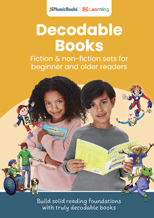We used to say “practice makes perfect”, but when it comes to memory “practice makes permanent”. We know that to get good at anything, we need to perfect and improve our skills, and this is done through repetition and rehearsal at each stage of learning. In order to learn we need to store the learning […]
Read MoreLearning to Read
Ask us anything! What phonics programme do you recommend?
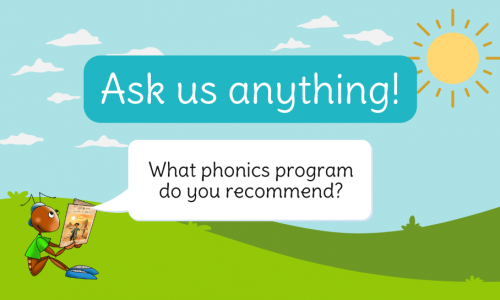
There are many phonics programmes to choose from. Here is what these programmes need to offer to deliver explicit, systematic, structured, and successful reading instruction for all children. 1. Clear scope and sequence: the Alphabetic Code is complex, and it is imperative that it is introduced in a systematic way – starting with the simple […]
Read MoreWhat is ‘Set for Variability’ and how do we develop this reading strategy?

What is Set for Variability? Set for Variability is a cognitive flip that we do when we mispronounce a new word, and we need to try a different pronunciation to fit in that word. A classic example is when a learner reads the word ‘head’ as ‘heed’. They are misapplying their phonic knowledge to this […]
Read MoreHow to avoid the summer reading slump!

Research has shown that children lose the equivalent of one month of learning over the summer. Many children experienced learning loss during the pandemic, so it is important that we help to keep children reading throughout the summer to prevent this additional summer slide. Here are ten ideas to keep children reading over the summer […]
Read MoreDandelion Series Leaflet

Find out all you need to know about the Phonic Books Dandelion Series Check out our leaflet to find out more about our Dandelion Series and to answer any questions you may have: What is decoding? What are decodable books? Why Phonic Books decodable books? What is the scope and sequence? What titles are in […]
Read MoreHow Decodable Texts Support Reading Fluency
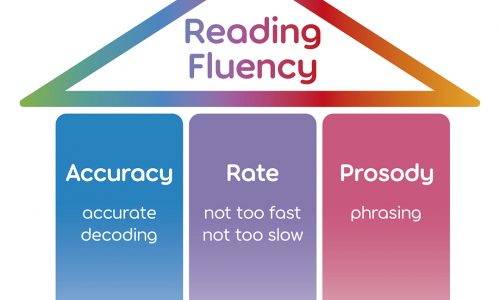
For children to comprehend a text, they need to read it fluently. If the reading is disfluent, the reader will struggle to hold onto all the information to comprehend a sentence or paragraph. We know that reading fluency has three components, as seen above: Accuracy – children need to be able to read words accurately. […]
Read MoreHow decodable books can support language comprehension
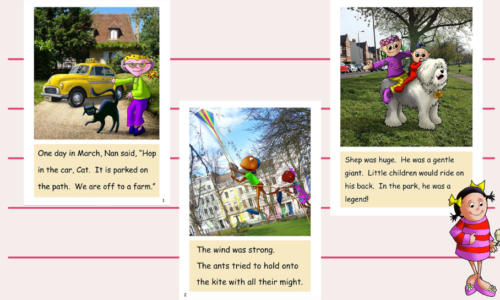
Scarborough’s Reading Rope is a wonderful theoretical framework for describing the complexity of reading and what we need to teach children in order to become fluent readers who can comprehend a text successfully. Decoding is on one branch of the rope, and language comprehension is on the other branch. These become increasingly intertwined as children […]
Read MoreTotem and Talisman Testimonial
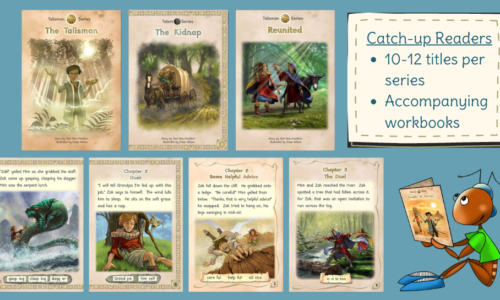
In this testimonial Sharon Dheraj shares how she uses the Totem and Talisman series in her classroom. Sharon is a SENCO in a one form entry primary school as well as a specialist teacher and assessor of dyslexia. *** My day-to-day responsibilities include overseeing the operation of the SEND Policy, coordinating provisions for pupils with […]
Read MoreMotivation comes first!

Stanilas Dehaene, a leading neuroscientist, has researched how the brain learns. He has summarised his findings with the ‘Four pillars of learning’. The first pillar is attention. Without attention we can’t learn. We need to focus on what is being learned in order to absorb it. BUT – before attention – comes motivation. We need […]
Read MoreWhat’s in a name?
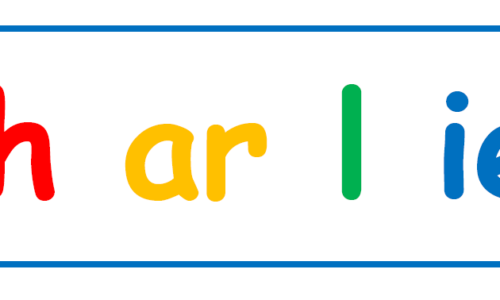
If asked, many early years and special school teachers would probably say that one of the first things children should learn is to recognise and later write their name. One single word, yet many children seem to find this difficult, and it can take a surprisingly long time to achieve. The main reason for this […]
Read More
